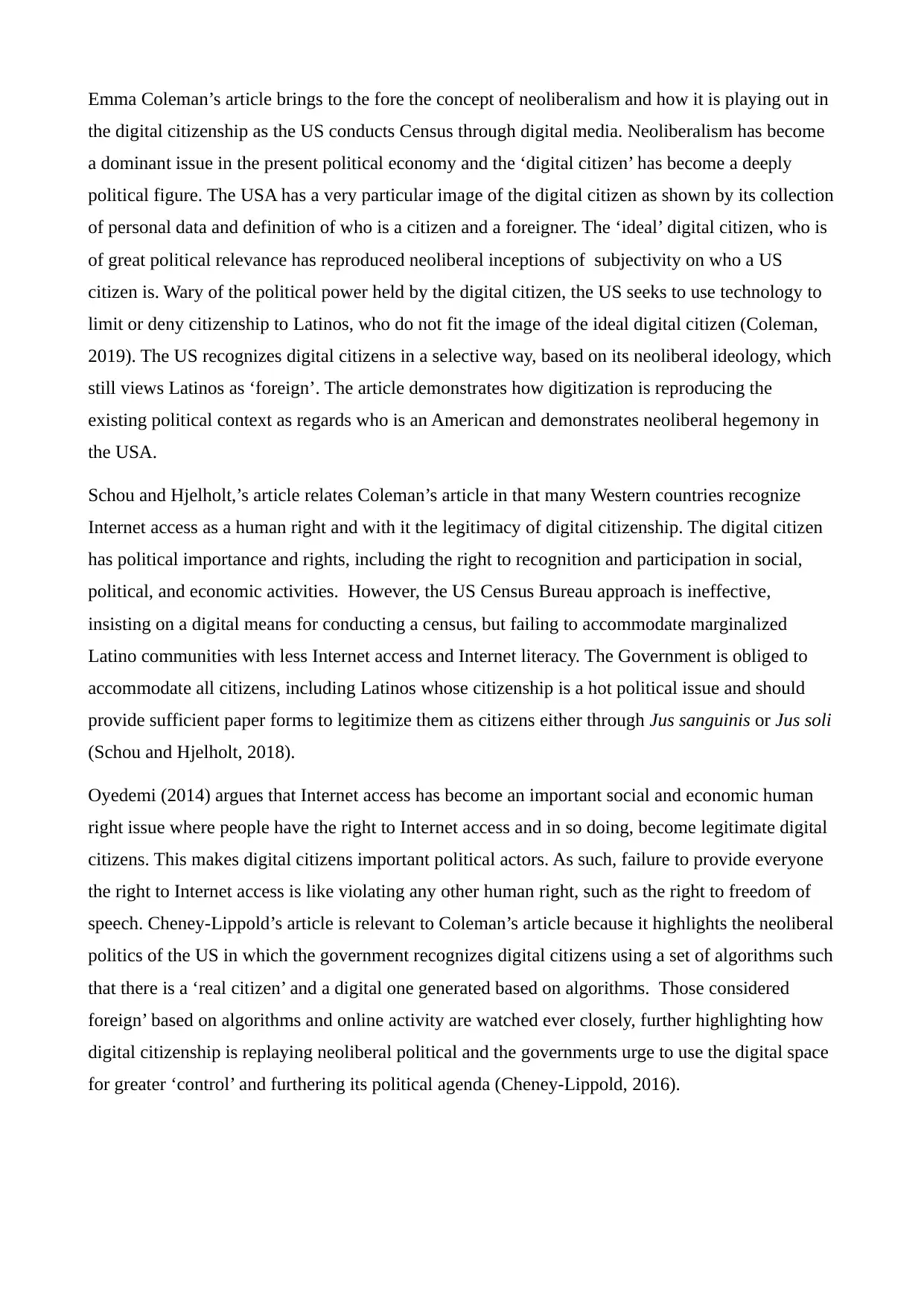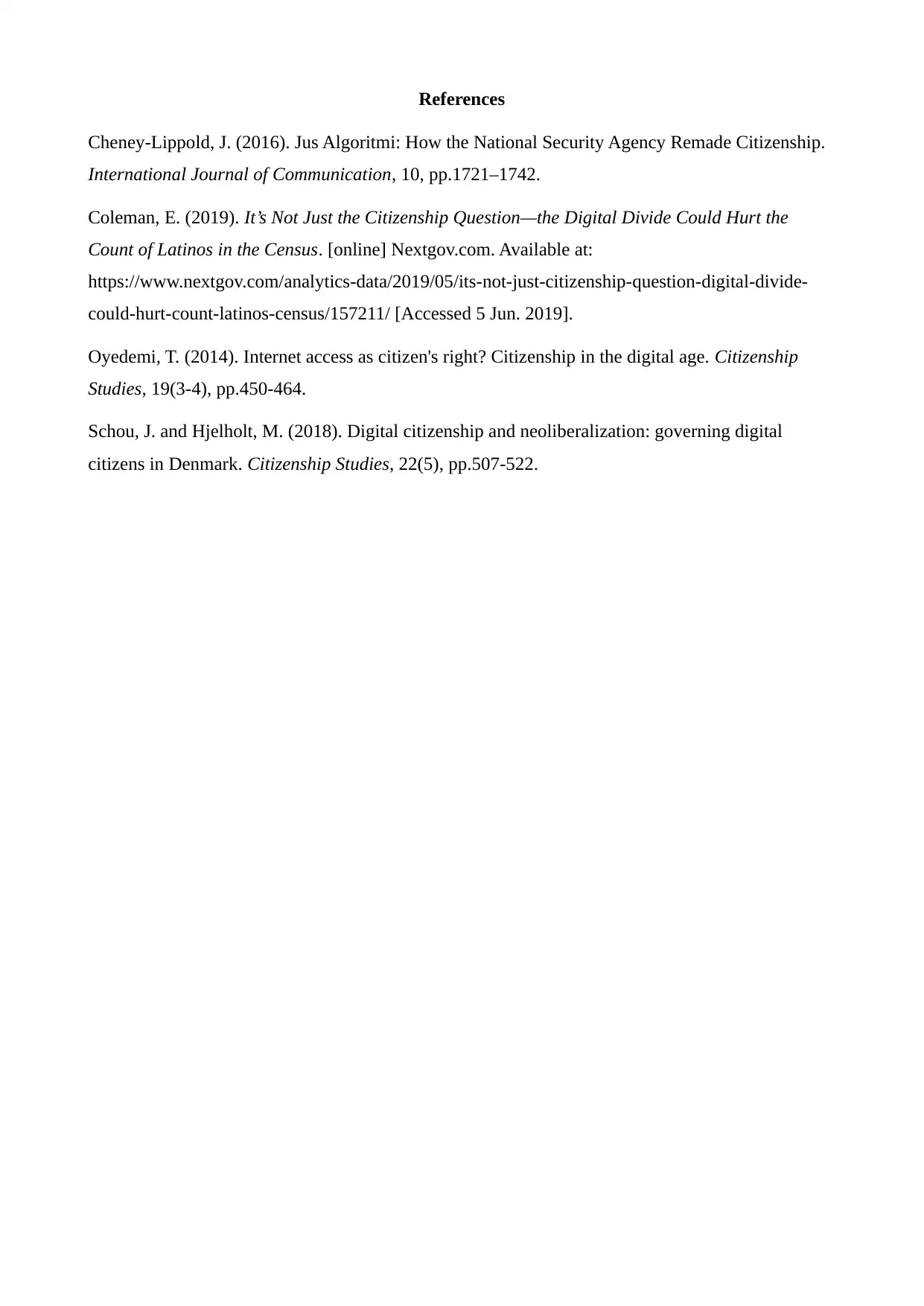Digital Citizenship Analysis: News Item, Readings, and Neoliberalism
VerifiedAdded on 2023/03/29
|3
|536
|208
Homework Assignment
AI Summary
This assignment analyzes Emma Coleman's article on digital citizenship, focusing on how neoliberalism influences the US census and its impact on Latino communities. The US government's selective recognition of digital citizens, based on neoliberal ideology, is highlighted, particularly regarding the exclusion of Latinos. The analysis connects Coleman's article with works by Schou and Hjelholt, who discuss the importance of internet access as a human right for digital citizenship, and Cheney-Lippold, who examines how algorithms shape digital citizenship. The assignment emphasizes how the digital divide and algorithmic biases reproduce existing political contexts and reinforce neoliberal hegemony, ultimately affecting who is considered a legitimate citizen. The provided references include articles that explore the implications of digital citizenship, internet access, and the role of algorithms in shaping citizenship within a neoliberal framework.
1 out of 3





![[object Object]](/_next/static/media/star-bottom.7253800d.svg)